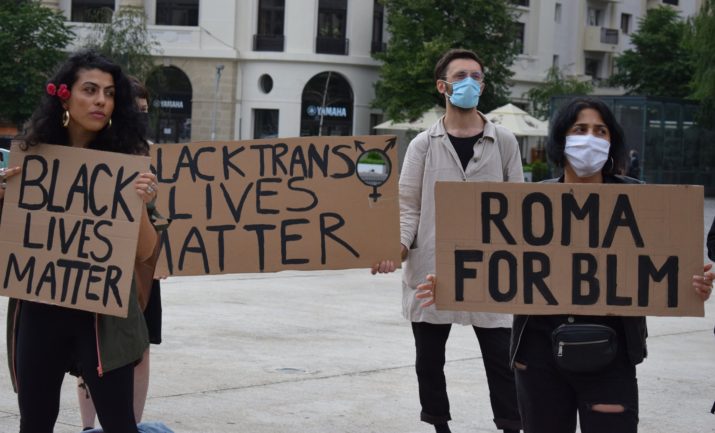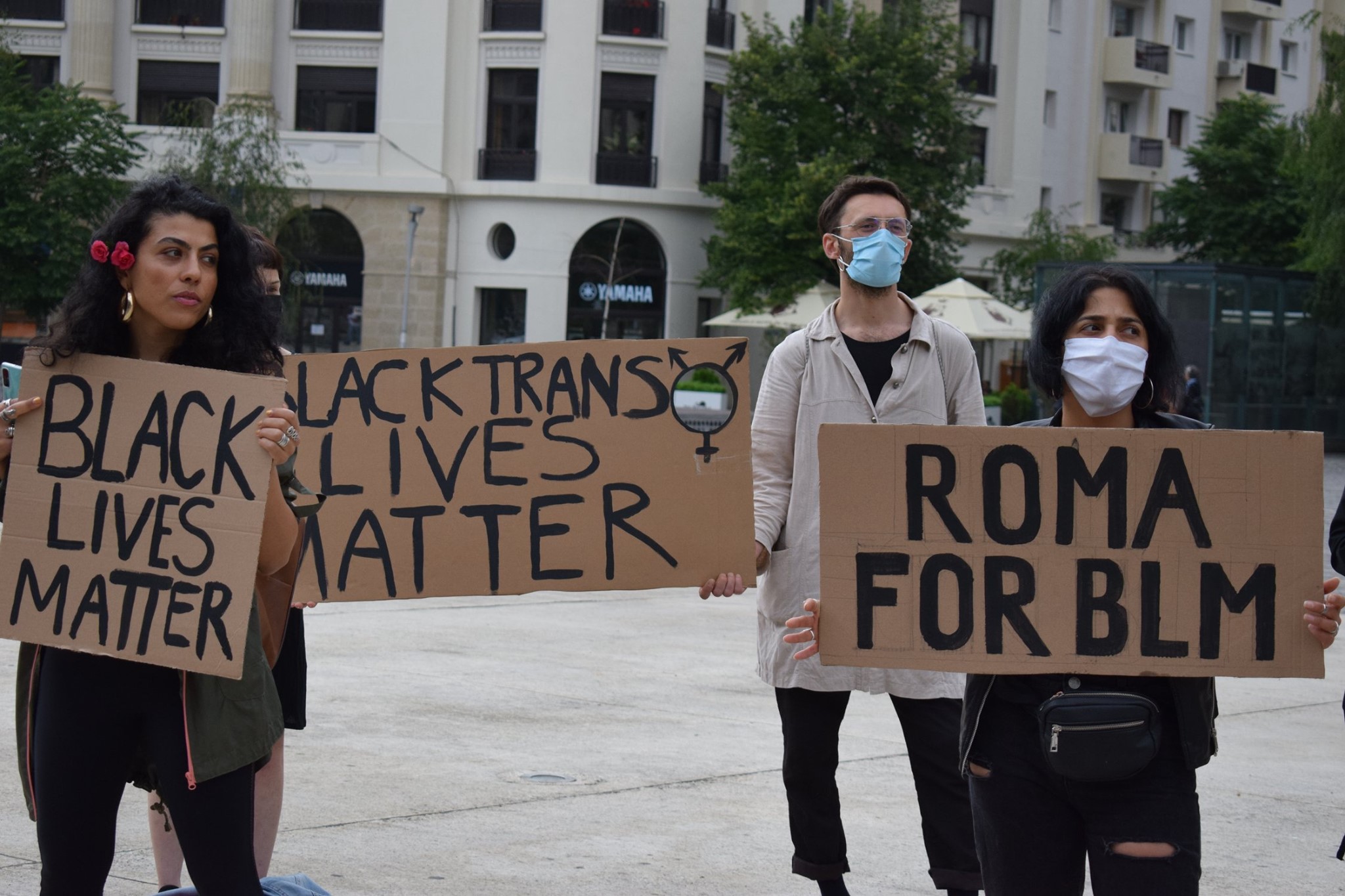
A Roundtable on Ideas of Race, Ideologies of Racism: Roma Rights in Europe During the #BLM Moment

An introduction to a Roundtable, Ideas of Race, Ideologies of Racism: Roma Rights in Europe during the #BLM moment.
While across the Atlantic, the murder of George Floyd by Minneapolis police sparked an unprecedented reckoning in America with the country’s racist past and the enduring legacy of this history through current manifestations of systemic racism, in Europe the pandemic served as a catalyst for anti-Roma racism to resurge. Roma in Europe have been disproportionately affected by the pandemic from a public health perspective. More than that, Roma were also victim to many instances of racially motivated police violence, scapegoating in the media, and extreme quarantine measures. At first, European society seemed content to critique racially motivated violence in the US with little reflection about European manifestations of anti-Blackness, colonialism, xenophobia and racism. When statues started falling, and European civil society began to interrogate the manifold ways in which systemic racism permeates society, anti-Roma racism failed to precipitate any meaningful attention or response.
Romani people constitute Europe’s largest minority. They migrated to Europe during the twelfth century as a diasporic people from the Indian continent. Until 1865, Roma were held as slaves in the Romanian Principalities. During WWII, Roma were targeted for extermination on racial grounds, yet this integral part of European history often goes unmentioned. Today, the lasting effects of intergenerational trauma and exploitation continue to be felt in the treatment of Roma in Europe as they experience segregation, discrimination in access to safe housing, education, jobs, and health care. Given this long history of Romani persecution, how is it that during one of the most revolutionary moments of challenging global white supremacy and racism, anti-Roma racism has been completely absent from these conversations?
This roundtable reflects on the fundamental questions stemming from this glaring absence. It seeks to unveil how Roma fit into the racializing equation of contemporary global reckonings with colonialism and slavery and how the contemporary moment and the #BLM movement reframe and recharge the struggle for Romani liberation. Four scholars of race in the European space reflect on what “racism” means when referring to Romani people. In her contribution, Sunnie Rucker-Chang highlights the numerous parallels and intersections between Romani and African American communities’ stories of race and racism. Marius Turda offers a close reading of contemporary manifestations of anti-Roma racism in Romania through the eugenicist lens. In doing so, Turda considers whether or not European societies have been able to reflect on their own investment in systems of white supremacy when it comes to their treatment of their largest minority. Manuela Boatcă’s piece is a poignant reflection on the politics of memory vis-à-vis the lack of remembrance of Romani history. In my own article, I fold Romani persecution into contemporary conversations around decolonization and anti-racism. Through a comparative and global perspective that takes into account Romani abjection, this roundtable brings to light aspects of coloniality, racism, and their afterlives that otherwise go unmentioned. It throws into stark relief the current situation of anti-Roma racism in Europe, documenting the historical and contemporary human rights abuses against the Roma, and critically investigates the ideologies of race and racism that buttress Romani persecution, ultimately enacting a decolonization of hegemonic histories and discourses that often fail to include the Roma.
Roundtable: Ideas of Race, Ideologies of Racism: Roma Rights in Europe During the #BLM Moment
-
Introduction by Ioanida Costache
-
“Subjects of Racialized Modernity: Romani People and Decoloniality in Europe” by Ioanida Costache
-
“COVID-19, Systemic Racism, and Saying ‘Roma Lives Matter’” by Sunnie Rucker-Chang
-
“Anti-Roma Racism in the Time of COVID” by Marius Turda
-
“Politics of Memory Under Two Pandemics” by Manuela Boatcă
Ioanida Costache is a PhD candidate at Stanford University in ethnomusicology. Her research explores issues of race and ethnicity, performance/construction of identity, cultural memory, trauma, and history as they intersect in Romanian-Romani musico-oral traditions.




